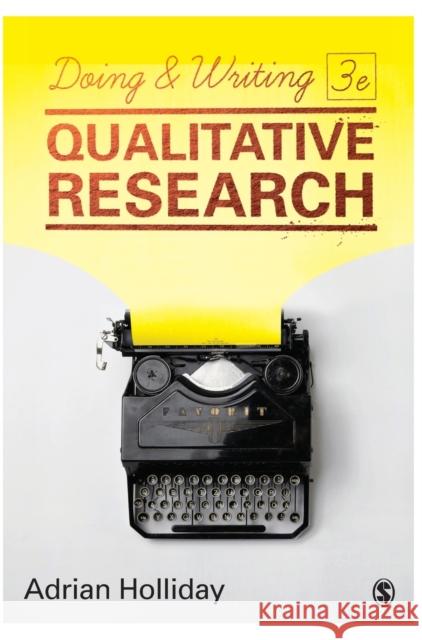Doing & Writing Qualitative Research » książka
Doing & Writing Qualitative Research
ISBN-13: 9781473953260 / Angielski / Twarda / 2016 / 216 str.
Doing & Writing Qualitative Research
ISBN-13: 9781473953260 / Angielski / Twarda / 2016 / 216 str.
(netto: 641,08 VAT: 5%)
Najniższa cena z 30 dni: 599,45
ok. 22 dni roboczych.
Darmowa dostawa!
With a strong focus on using less traditional forms of data the Third Edition provides a new perspective on issues such as the role of the researcher and the impact they have on data, and also considers the impact of social, cultural and political complexities across a range of disciplines.
Approachable and logically structured, this new edition expertly sets out the many roles of writing in research. From the more theoretical subjects (e.g. research strategies, data types, and writing styles) to the nitty gritty practicalities (e.g. conventions, taking notes, and writing questions), each chapter covers many common concerns writers face when attempting to transform complex data and real world research experiences into textual products. With fully updated examples and case studies as well as a strong focus on using less traditional forms of data like photographs, personal narrative, and creative non-fiction, this third edition introduces students to modern opportunities in data collection and sourcing that adds depth to their research. Find out how to: - Establish and construct research questions, frameworks, and paradigms - Engage with different styles and media of data - Present ideas clearly and persuasively - Approach sensitive issues of identity and avoid reductive judgements - Discover your individual writing voice Through its accessible advice and its exploration of social, cultural, and political complexities across disciplines, this book is appropriate for both novices and more experienced researchers and forms an essential tool for students engaging in qualitative research across a variety of fields.











